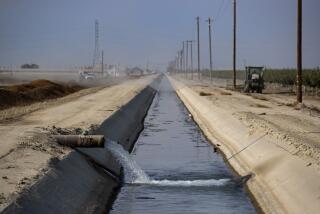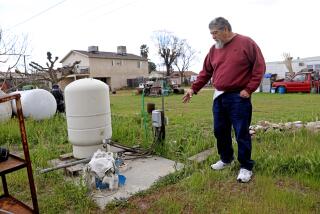Federal panel urges greater tabs on ‘fracking’
- Share via
Reporting from Washington — A federally-appointed panel recommended greater disclosure and monitoring of the environmental effects of extracting natural gas from shale formations, marking the Obama administration’s first broad assessment of the controversial practice known as fracking.
A coast-to-coast shale gas boom has raised concerns about the risks to underground water supplies from hydraulic fracturing, which involves mixing sand, water and chemicals and injecting them into shale formations at high pressure to unlock the gas. Environmental groups, local residents and politicians in areas rich with shale gas have said that hydraulic fracturing, or “fracking,” could lead to contamination of the water table. The energy industry insists that fracking is safe.
It remains unclear whether the report, issued by an expert panel appointed by Energy Secretary Steven Chu, will calm the debate. It’s also uncertain if and how its recommendations would be implemented. The administration has not seen it yet.
“The report urges industry to come clean and for scientists and regulators to do their jobs,” said Benjamin Grumbles, president of the Clean Water America Alliance, an association of municipal water districts and private industry.
The report won over some industry observers by eschewing the view common among environmental groups that shale gas production is inherently dangerous.
The report identied four main concerns: possible water pollution from chemicals used in fracking and from methane gas releaed by the process; air pollution from methane and equipment emissions used in gas production; potential disruption to communities and the acumulative adverse effects on their ecology.
The panel recommended that companies measure and disclose what’s in the water throughout the production process and called on them to reveal the chemicals they inject into the ground, unless the mix is “genuinely proprietary.” They also called for monitoring and reducing air emissions at gas production sites, and for making some areas off-limits to gas extraction.
More to Read
Sign up for Essential California
The most important California stories and recommendations in your inbox every morning.
You may occasionally receive promotional content from the Los Angeles Times.











